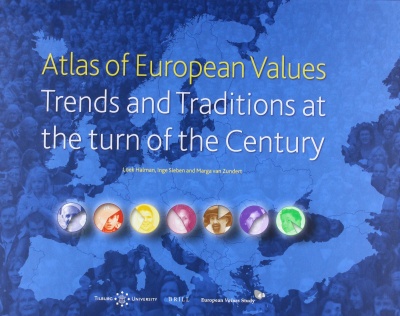European Values Study (EVS)
The EVS is a comparative study into norms and values in Europe. Since 1981, it has been done once every nine years in an increasing number of countries in Europe, aiming to uncover their fundamental values and compare them internationally. In the late seventies, it was decided to look into the values of the Europeans in the ten countries that were then members of the European Economic Community (EEC). The project was led by Professors Ruud de Moor (TSB) and Jan Kerkhofs (KU Leuven).
All European countries involved
In large samples, interviewees were asked about a great number of their fundamental religious, moral, social and political orientations and about their immediate sphere of living, labor and leisure. The study was repeated in 1990, also to find out if and how values in Europe were actually changing. This second study, moreover, was also carried out in several Central and Eastern European countries, which was a first in the world of socio-scientific research. Its success prompted the decision to perform the study once every nine years. The 1999 study comprised 33 European countries; the 2008 study was done in all 45 European countries, from Iceland to Turkey and from Portugal to Russia.
Trend studies
The data generated by the study led to a host of international comparative publications and to trend studies in the participating countries. The study also led to the production of a user-friendly atlas, with maps and graphs visualizing the main outcomes and developments. People’s views within countries appear to be pretty stable, but the differences between countries are great. For example, the percentage of people who agree that democracies are not good at maintaining public order ranged between 13-22% in Western Europe and between 42-60% in the former East Bloc countries. In the lustrum year, the first lustrum study took place, whose results will be published in 2018. The data can be accessed on [gesis], and they were downloaded almost 28,000 times in the 2008-2015 period.

